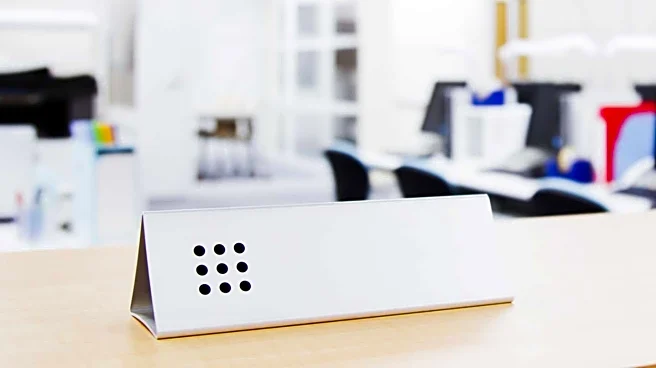What's Happening?
A recent discussion on the BBC's 'More or Less: Behind the Stats' podcast examines whether office temperatures are set too low for women to be comfortable during the summer. The concept, often referred to as 'women's winter,' suggests a gender bias in air conditioning settings. The podcast features insights from Gail Brager, Director of the Center for Environmental Design Research at UC Berkeley, and Boris Kingma, a senior researcher at the Netherlands Applied Research Institute. They explore the scientific evidence behind these claims and discuss the potential impact on workplace comfort and productivity.
Why It's Important?
The issue of gender bias in office temperature settings is significant as it affects workplace comfort and productivity. If temperatures are indeed set based on male-centric standards, it could lead to discomfort and decreased efficiency for female employees. Addressing this bias could improve workplace inclusivity and employee satisfaction. The discussion also highlights the importance of considering diverse needs in workplace design and policy-making, which can have broader implications for gender equality in professional environments.
What's Next?
Further research and discussions may lead to changes in how office temperatures are regulated, with potential adjustments to accommodate a wider range of comfort levels. Companies might consider implementing more flexible temperature controls or personalized climate solutions to enhance employee well-being. The conversation could also prompt broader discussions on gender biases in other workplace policies and practices.
Beyond the Headlines
The exploration of gender bias in office temperatures touches on larger themes of inclusivity and diversity in the workplace. It raises questions about how other seemingly neutral policies may inadvertently disadvantage certain groups. This issue could serve as a catalyst for more comprehensive evaluations of workplace environments and the development of more equitable standards.











